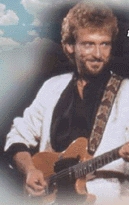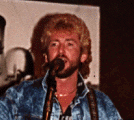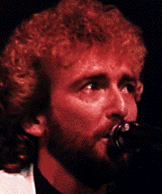WHEN YOU SAY NOTHING AT ALL
Keith Whitley
written by Paul Overstreet/Don Schlitz
Intro: G - D - C - D (twice)
Verse 1:
G D C D G D C D
It's amazing how you can speak right to my heart
G D C D G D C D
Without saying a word, you can light up the dark
C D
Try as I may I could never explain
G D C D
What I hear when you don't say a thing
Chorus:
G D C D
The smile on your face let's me know that you need me
G D C D
There's a truth in your eyes saying you'll never leave me
G D C D C D
The touch of your hand says you'll catch me if ever I fall
C D G D C D
You say it best when you say nothing at all
Verse 2:
All alone I can hear people talking outloud
But when you hold me near, you drown out the crowd
Old Mr. Webster could never define
What's being said between your heart and mine
(Chorus twice)
|





















